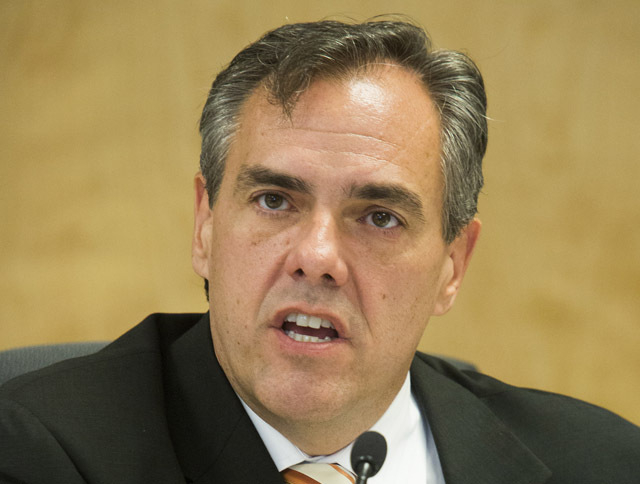Concern over Nevada student privacy prompts policy review
Public concerns over Nevada’s super-data system – which will soon track every public school student from pre-kindergarten to college and into the workforce – has prompted the Nevada Department of Education to invite public input on its proposed policies for securing student information and regulating who has access to it.
A draft of the proposed policy is posted at www.doe.nv.gov. Written comments should be emailed by the end of May 26 to ndeinfo@doe.nv.gov, or sent to 700 E. Fifth Street, Suite 100, Carson City, NV 89701. The State Board of Education will review the policy at its May 29 meeting.
“Protecting the privacy, security, and confidentiality of student data is a responsibility” that State Superintendent of Public Instruction Dale Erquiaga said his department takes “very seriously.” He added that the issue is also “working to improve the public’s understanding of our processes for protecting student privacy.”
Federal law, spelled out in the Family Educational Rights Privacy Act of 1974, already establishes limitations for sharing individual student information, he said. Beyond that, the department plans to place even more restrictions on the use of this information in the department’s in-house student data system. Some of that data will soon be shared with two other agencies in the digital Statewide Longitudinal Data System to be completed by July 2015.
Erquiaga’s department has partnered with the Nevada System of Higher Education and Nevada Department of Employment, Training and Rehabilitation to contribute data and create the super-data system. On Tuesday, the trio of state departments received approval from the Nevada Board of Examiners – consisting of the governor, secretary of state and attorney general – to use a $2.15 million federal grant in contracting with the Center for Innovative Technology for the system.
The education department’s in-house tracking system not only keeps detailed information on students, but also teachers. Nevada’s first statewide teacher evaluation system will assess teachers based on their students’ standardized test scores.
Student files include the basic information: name, birth date and place, gender, ethnicity and an identification number following each individual throughout their young lives. Along with academic records, students are also identified for being poor, struggling to speak English, being special education or academically disadvantaged (meaning they have many absences, failed courses, take remedial courses or attend behavioral school because of disciplinary issues).
Nevada’s proposed policies would limit the spread of individual student information beyond school personnel and state education officials. Only school-wide data would be publicly released, as is currently done in Nevada’s annual school Report Card. Personally identifiable information wouldn’t be available to all state education department employees, either. Such details would only be available to state employees who need them to conduct school audits or other investigations requiring individual student information, such as the recent cheating scandal at Las Vegas’ Kelly Elementary School.
However, the state is allowed to share student data with outside agencies for research purposes. While that may be done, proposed policies call for each student’s record to be assigned a “meaningless code” unidentifiable to the student by name or their ID number. Student information, traceable back to the student, would only be released when a student transfers out and the new school needs academic records or an outside agency is hired to develop student tests, provide student-support services or student instruction. The student-level information must then be destroyed.
Any government employee who causes a security breach may be fired and subject to legal action. Any outside agency that releases student-level information or takes it beyond the allowed use may have its contract cut and be subject to penalties.
Contact Trevon Milliard at tmilliard@reviewjournal.com or 702-383-0279702-383-0279. Find him on Twitter: @TrevonMilliard.

















